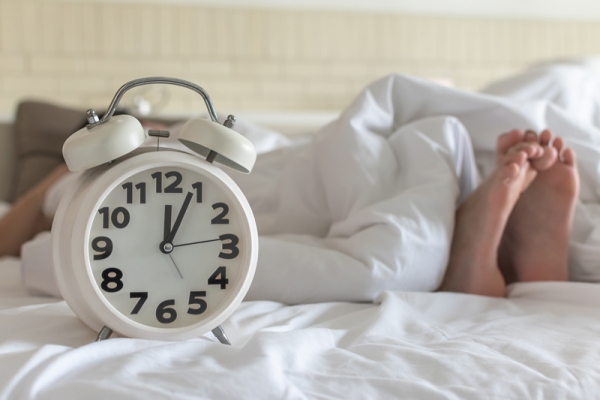Okay, so we’re not entirely recommending you get 4 hours of sleep. The National Sleep Foundation recommends adults get 7-9 hours of sleep per night.
But the emphasis with sleep should always be with quality over quantity. How much of those 8 hours are you really sleeping versus laying wide awake or trying to fall asleep.
And then there’s the overused sentiment repeated by parents, workaholics, and students everywhere: “There’s just not enough hours in the day…” The fact of the matter is, not all of us can afford to set aside 7-9 hours of sleep. How can we get around this? Is there a way?
The short answer is no. But there is a technique that has been used by hustle culture in Silicon Valley to squeeze more time into their day.
So you want to know how you can achieve 8 hours of sleep in 4 hours?
This is better known as Polyphasic Sleep
Most of us are more familiar with monophasic sleep.
We sleep in one large chunk, typically at night and we’ve likely done this most of our lives.
On the other hand, polyphasic sleep involves short bursts of sleep. Taking long-ish naps multiple times in the day rather than sleeping at night in one stint. If you nail polyphasic sleep, it could definitely provide several benefits including more time, sharpened focus and longer days. Most polyphasic sleepers aim anywhere from 4-6 hours of sleep broken up throughout the day. But if you’re aiming for 4 hours, you would likely try taking 2 naps for 2 hours in the day. You could also sleep for around 3 hours at night and break into a few 20 minute naps during the day.
The most important thing to note, is that this technique will not work for everyone and it’s not overly encouraged. While attaining deep sleep is more about the quality than quantity, there are still other factors, besides just time, that inhibit our sleep.
The only way we can truly feel the benefits of deep sleep in 4 hours, is if we set up a life conducive for quality sleep.
Tips for achieving quality sleep

- Exercising regularly will make your body more tired, helping you fall asleep faster;
- Watch what you’re consuming, especially before bed. Cut back on heavy meals, alcohol, caffeine and sugar that will keep you stimulated;
- Create a peaceful, environment in your bedroom;
- This tip can’t be more overly stated but yet still ignored – limit screen time on electronics before going to sleep as this keeps your brain alert longer; and,
- Do something relaxing to wind down before sleeping, like reading a book or taking a warm bath.
At the end of the day, it’s not possible to always get the effects of 8 hours of quality sleep in 4 hours or less. In fact, there is very little data that demonstrates getting less or fragmented sleep benefits our health, and in most cases could make it worse:
“People who don’t get at least seven hours of sleep each day may even be at higher risk for chronic conditions such as diabetes and obesity.”
– Dr. Alon Avidan, University of California Los Angeles Sleep Disorders Center
Some individuals may be able to operate on less sleep, but this isn’t the norm. We need to prioritize time for sleep more than time to catch up on work. Our long-term health and well-being depends on it. You can’t work at your best if you’re not healthy! To determine the optimal sleep hours that your body needs, check out our article here.





